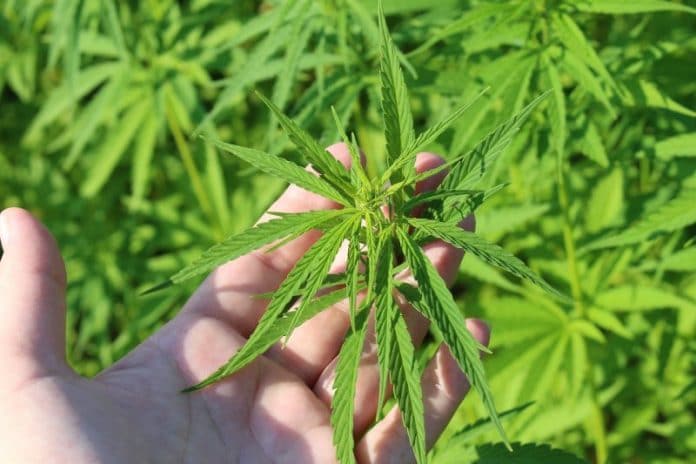Much of the buzz around changes to Canada’s cannabis laws focus on recreational use of the plant, but industrial hemp growers across the country are set to benefit as well.
Up until yesterday, the industrial hemp sector was operating under the nation’s Industrial Hemp Regulations (IHR) that restricted use of the crop . While the fiber and grain (hempseed) could be used, the sale and processing of industrial hemp leaves and flowers was prohibited.
Industrial hemp has now been brought under the Cannabis Act, and allows for flower and leaves to be sold by farmers – assuming an appropriate cultivation license is held by the farmer growing the crop.
Industrial hemp has very low levels of tetrahydrocannabinol (THC – the intoxicating compound), but it can have high levels of cannabidiol (CBD). Cannabidiol is sought after for its various potential therapeutic properties and the sale of industrial hemp flowers could provide a substantial revenue source for farmers.
Canada has a huge industrial hemp sector, with more than 1,200 farmers reportedly growing the crop. Almost 140,000 acres were planted in 2017, up 80% from 75,000 acres in 2016. This year, the nation’s industrial hemp sector celebrates 20 years of the crop in the country, with the first licence to grow the plant for commercial purposes issued in May 1998. Hemp production was previously prohibited in Canada starting in 1938.
Under the Cannabis Act, industrial hemp is removed from the Controlled Drugs and Substances Act, and hemp seed and stalks are exempted from the Cannabis Act altogether. Additionally, cultivation licences will be current for five years instead of the previous one year.
Other hemp-related changes see a requirement for third-party testing of THC levels dropped, along with a ban on growing the crop within a kilometre of a school.
One potential downside of all this – for some in the cannabis industry anyway – could be increased amounts of CBD being produced resulting in downward pressure on prices. Tighter margins may see some falling by the wayside and significant consolidation. However, such a situation would be a plus for end-consumers as good-quality CBD is currently by no means a cheap product. Regardless of what transpires in the time ahead, consumers will need to continue to do their due diligence in selecting products.


